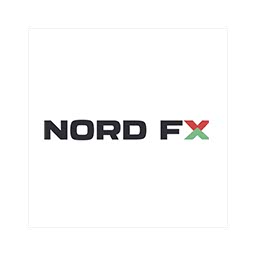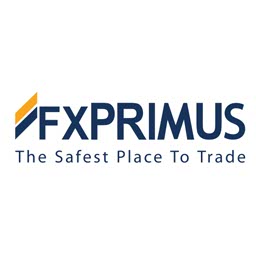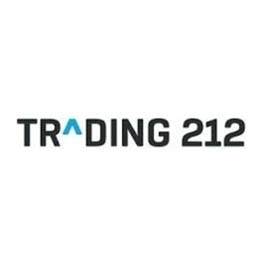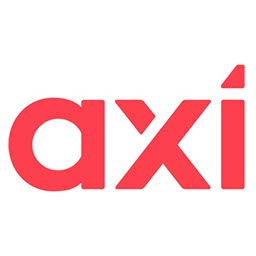Because you can't invest money that you don't already have, income is the obvious place to begin when thinking about investment objectives. One's age can be further subdivided into three distinct groups: those who are young and just starting out, those who are middle aged and building families, and those who are older and more independent. The term 'outlook' refers to the terrain on which we conduct our activities throughout our lives.
Many people fail to heed the age-old advice to put money away for 'rainy day' savings until it is far too late to do so. To our good fortune, beginning a career in finance is never too late. Regardless of your age, level of income, or perspective, the first dollar you put aside for the purpose of investing is where it all begins. If you wait this long to set investment goals, you run the risk of letting fear control your thinking.
When we get our first allowance or are paid for doing a chore, the power and authority of money begins to grow in us. As we get closer to adulthood and are encouraged to take out loans to pay for college or buy a car, the difficulties we face as a result increase. The close relationship that exists between financial planning and one's way of life becomes increasingly nuanced as time passes.

🤴 IC Markets is Used By: 180,000
⚡ IC Markets is Regulated by: Australian Securities and Investments Commission (ASIC), Financial Services Authority (FSA), Cyprus Securities and Exchange Commission (CySEC)
💵 What You Can Trade with IC Markets: Forex, Majors, Energies, Metals, Agriculturals,
💵 Instruments Available with IC Markets: 232
📈 IC Markets Inactivity Fees: No
💰 IC Markets Withdrawal Fees: No
💰 IC Markets Payment Methods: Credit Cards, VISA, MasterCard, Debit Cards, Visa, MasterCard, Bank Transfer, PayPal, Neteller, Neteller VIP, Skrill, Poli, Cheque, BPAY, UnionPay, FasaPay, QIWI, RapidPay, Klarna, Electronic wallets (eWallets), Broker to Brokers, Thai Internet Banking, Vietnamese Internet Banking,
IC Markets Risk warning : Losses can exceed deposits

🤴 Roboforex is Used By: 10,000
⚡ Roboforex is Regulated by: RoboForex Lid is regulated by Belize FSC, License No. 000138/7, reg. number 000001272
💵 What You Can Trade with Roboforex: Forex, Minors, Majors, Exotics, Indices, Metals,
💵 Instruments Available with Roboforex: 100
📈 Roboforex Inactivity Fees: No
💰 Roboforex Withdrawal Fees: Yes
💰 Roboforex Payment Methods: Credit cards, VISA, MasterCard, JCB, Debit cards, Bank Transfer, Electronic wallets (eWallets), Neteller, Skrill, Perfect Money, AdvCash, BPAY, China UnionPay, FasaPay, CashU, WeChat Pay, ecoPayZ, AstroPay, Sofort, Giropay, Poli, Wepay, iDEAL, Payoneer,
Roboforex Risk warning : Losses can exceed deposits

🤴 AvaTrade is Used By: 200,000
⚡ AvaTrade is Regulated by: Central Bank of Ireland, Australian Securities and Investments Commission (ASIC), Financial Services Authority (FSA), South African Financial Sector Conduct Authority (FSCA), Financial Stability Board (FSB), Abu Dhabi Global Markets (ADGM), Financial Regulatory Services Authority (FRSA), British Virgin Islands Financial Services Commission (BVI)
💵 What You Can Trade with AvaTrade: Forex, Minors, Cryptocurrencies, Majors, Exotics, Indices, UK Stocks, US Stocks, Energies, Metals, Agriculturals, ETFs, IPO, Bonds,
💵 Instruments Available with AvaTrade: 1000
📈 AvaTrade Inactivity Fees: No
💰 AvaTrade Withdrawal Fees: No
💰 AvaTrade Payment Methods: Credit cards, VISA, MasterCard, Bank Transfer, Electronic wallets (eWallets), PayPal, Neteller, WebMoney, Payoneer,
AvaTrade Risk warning : 71% of retail CFD accounts lose money

🤴 FP Markets is Used By: 10,000
⚡ FP Markets is Regulated by: Australian Securities and Investments Commission (ASIC), Cyprus Securities and Exchange Commission (CySEC), Financial Services Authority (St. Vincent and the Grenadines)
💵 What You Can Trade with FP Markets: Forex, Minors, Majors, Exotics, Indices, Metals,
💵 Instruments Available with FP Markets: 100
📈 FP Markets Inactivity Fees: No
💰 FP Markets Withdrawal Fees: No
💰 FP Markets Payment Methods: Credit cards, VISA, MasterCard, Debit cards, Bank Transfer, Electronic wallets (eWallets), Neteller, BPAY, POLi, PayPal, Neteller, Skrill, PayTrust, NganLuong VN, Fasapay, Broker to Broker, OnlinePay China, Directa24, Klarna, PayTrust88, Payoneer,
FP Markets Risk warning : Losses can exceed deposits

🤴 NordFX is Used By: 10,000
⚡ NordFX is Regulated by: Cyprus Securities and Exchange Commission (CySEC), License No: 209/13
💵 What You Can Trade with NordFX: Forex, Majors, Metals,
💵 Instruments Available with NordFX: 50
📈 NordFX Inactivity Fees: No
💰 NordFX Withdrawal Fees: No
💰 NordFX Payment Methods: Bank Transfer, Neteller, PerfectMoney, WebMoney, FasaPay, CashU, Payza, QIWI,
NordFX Risk warning : Losses can exceed deposits

🤴 XTB is Used By: 250,000
⚡ XTB is Regulated by: Financial Conduct Authority (FCA), FCA number FRN 522157, Cyprus Securities and Exchange Commission (CySEC), CySEC Licence Number: 169/12, Comision Nacional del Mercado de Valores, Komisja Nadzoru Finansowego, Belize International Financial Services Commission (IFSC) under license number IFSC/60/413/TS/19, Polish Securities and Exchange Commission (KPWiG), Dubai Financial Services Authority (DFSA), Dubai International Financial Center (DIFC),Financial Sector Conduct Authority (FSCA), XTB AFRICA (PTY) LTD licensed to operate in South Africa
💵 What You Can Trade with XTB: Forex, Minors, Cryptocurrencies, Majors, Exotics, Indices, UK Stocks, US Stocks, Pennystocks, Energies, Metals, Agriculturals, ETFs,
💵 Instruments Available with XTB: 4000
📈 XTB Inactivity Fees: Yes
💰 XTB Withdrawal Fees: No
💰 XTB Payment Methods: Credit cards, MasterCard, Maestro, Visa, Debit cards, Bank Transfer, Electronic wallets (eWallets), PayPal, Neteller, Skrill, Poli, Paysafe, Payoneer,
XTB Risk warning : 76% - 83% of retail investor accounts lose money when trading CFDs with this provider. You should consider whether you understand how CFDs work and whether you can afford to take the high risk of losing your money.

🤴 Pepperstone is Used By: 89,000
⚡ Pepperstone is Regulated by: Financial Conduct Authority (FCA), Australian Securities and Investments Commission (ASIC), Cyprus Securities and Exchange Commission (CySEC), Federal Financial Supervisory Authority (BaFin), Dubai Financial Services Authority (DFSA), Capital Markets Authority of Kenya (CMA), Pepperstone Markets Limited is incorporated in The Bahamas (number 177174 B), Licensed by the Securities Commission of the Bahamas (SCB) number SIA-F217
💵 What You Can Trade with Pepperstone: Forex, Minors, Cryptocurrencies, Majors, Exotics, Indices, Energies, Metals,
💵 Instruments Available with Pepperstone: 100
📈 Pepperstone Inactivity Fees: Yes
💰 Pepperstone Withdrawal Fees: No
💰 Pepperstone Payment Methods: Credit cards, VISA, MasterCard, Debit cards, Bank Transfer, Electronic wallets (eWallets), PayPal, Neteller, BPAY, POLi, UnionPay, FasaPay, QIWI, Payoneer,
Pepperstone Risk warning : CFDs are complex instruments and come with a high risk of losing money rapidly due to leverage. Between 74-89 % of retail investor accounts lose money when trading CFDs. You should consider whether you understand how CFDs work and whether you can afford to take the high risk of losing your money

🤴 XM is Used By: 10,000,000
⚡ XM is Regulated by: Financial Services Commission (FSC), Cyprus Securities and Exchange Commission (CySEC), Australian Securities and Investments Commission (ASIC)
💵 What You Can Trade with XM: Forex, Stock CFDs, Commodity CFDs, Minors, Majors, Exotics, Equity Indices CFD, Energies CFD, Precious Metals
💵 Instruments Available with XM: 1000
📈 XM Inactivity Fees: Yes
💰 XM Withdrawal Fees: No
💰 XM Payment Methods: Credit cards, Debit cards, Bank Transfer, Electronic wallets (eWallets), Moneta, ABAQOOS, PRZELEWY24, Neteller, PerfectMoney, WebMoney, UnionPay, FasaPay, CashU, Payza, QIWI, SOFORT, Giropay, Payoneer, Skrill,
XM Risk warning : CFDs are complex instruments and come with a high risk of losing money rapidly due to leverage. 77.74% of retail investor
accounts lose money when trading CFDs with this provider. You should consider whether you understand how CFDs work and whether you can afford
to take the high risk of losing your money.

🤴 eToro is Used By: 20,000,000
⚡ eToro is Regulated by: Financial Conduct Authority (FCA), Cyprus Securities and Exchange Commission (CySEC), Markets In Financial Instruments Directive (MiFID), Australian Securities and Investments Commission (ASIC)
💵 What You Can Trade with eToro: Forex, Minors, Cryptocurrencies, Majors, Exotics, Indices, UK Stocks, US Stocks, Energies, Metals, Agriculturals, ETFs,
💵 Instruments Available with eToro: 2000
📈 eToro Inactivity Fees: Yes
💰 eToro Withdrawal Fees: Yes
💰 eToro Payment Methods: Credit cards, VISA, MasterCard, Maestro, Debit Cards, Bank Transfer, PayPal, Neteller, Skrill, WebMoney, Giropay, eWallets,
eToro Risk warning : 51% of retail investor accounts lose money when trading CFDs with this provider.

🤴 FXPrimus is Used By: 10,000
⚡ FXPrimus is Regulated by: Cyprus Securities and Exchange Commission (CySEC), Markets In Financial Instruments Directive (MiFID), Vanuatu Financial Services Commission (VFSC)
💵 What You Can Trade with FXPrimus: Forex, Minors, Majors, Exotics, Indices, UK Stocks, US Stocks, Energies, Metals,
💵 Instruments Available with FXPrimus: 130
📈 FXPrimus Inactivity Fees: No
💰 FXPrimus Withdrawal Fees: Varies
💰 FXPrimus Payment Methods: Credit cards, VISA, MasterCard, Debit cards, Bank Transfer, Electronic wallets (eWallets), Neteller, Skrill, Payoneer, SafeCharge, TrustPay, EmerchantPay, Bitcoin, UnionPay, FasaPay, Giropay,
FXPrimus Risk warning : Losses can exceed deposits

🤴 easyMarkets is Used By: 142,500
⚡ easyMarkets is Regulated by: Cyprus Securities and Exchange Commission (CySEC), Australian Securities and Investments Commission (ASIC), Financial Services Authority (FSA), British Virgin Islands Financial Services Commission (BVI)
💵 What You Can Trade with easyMarkets: Forex, Minors, Cryptocurrencies, Majors, Exotics, Indices, Energies, Metals, Agriculturals, Options,
💵 Instruments Available with easyMarkets: 200
📈 easyMarkets Inactivity Fees: No
💰 easyMarkets Withdrawal Fees: No
💰 easyMarkets Payment Methods: Credit cards, MasterCard, Maestro, American Express, JCB, Astropay, Debit cards, Bank Transfer, SOFORT, GiroPay, iDeal, Bpay, Electronic wallets (eWallets), Skrill, Neteller, WebMoney, UnionPay, WeChatPay, FasaPay, STICPAY,
easyMarkets Risk warning : Your capital is at risk

🤴 Trading 212 is Used By: 15,000,000
⚡ Trading 212 is Regulated by: Financial Conduct Authority (FCA), Financial Supervision Commission (FSC)
💵 What You Can Trade with Trading 212: Forex, Minors, Cryptocurrencies, Majors, Exotics, Indices, UK Stocks, US Stocks, Energies, Metals, ETFs, Bonds,
💵 Instruments Available with Trading 212: 10000
📈 Trading 212 Inactivity Fees: No
💰 Trading 212 Withdrawal Fees: No
💰 Trading 212 Payment Methods: Credit cards, MasterCard, VISA, Debit cards, Bank Transfer, Electronic wallets (eWallets), PayPal, Skrill, Dotpay, Carte Bleue, Direct eBanking, Apple Pay, Google Pay, iDeal, Giropay,
Trading 212 Risk warning : CFDs are complex instruments and come with a high risk of losing money rapidly due to leverage. 76% of retail investor accounts lose money when trading CFDs with this provider. You should consider whether you understand how CFDs work and whether you can afford to take the high risk of losing your money.

🤴 Admiral Markets is Used By: 10,000
⚡ Admiral Markets is Regulated by: Financial Conduct Authority (FCA), Cyprus Securities and Exchange Commission (CySEC), Australian Securities and Investments Commission (ASIC), Jordan Securities Commission (JSC)
💵 What You Can Trade with Admiral Markets: Forex, Minors, Cryptocurrencies, Majors, Exotics, Indices, UK Stocks, US Stocks, Energies, Metals, ETFs, Bonds,
💵 Instruments Available with Admiral Markets: 148
📈 Admiral Markets Inactivity Fees: No
💰 Admiral Markets Withdrawal Fees: No
💰 Admiral Markets Payment Methods: Credit cards, Visa, MasterCard, Debit cards, Bank Transfer, Electronic wallets (eWallets), PayPal, Neteller, Skrill, SOFORT, Safety Pay, Przelewy, iDEAL, Klarna,
Admiral Markets Risk warning : Losses can exceed deposits

🤴 SpreadEx is Used By: 10,000
⚡ SpreadEx is Regulated by: Financial Conduct Authority (FCA)
💵 What You Can Trade with SpreadEx: Forex, Minors, Cryptocurrencies, Majors, Exotics, Indices, UK Stocks, US Stocks, Pennystocks, Energies, Metals, Agriculturals, ETFs, IPO, Bonds, Options, Treasuries,
💵 Instruments Available with SpreadEx: 15000
📈 SpreadEx Inactivity Fees: No
💰 SpreadEx Withdrawal Fees: 0, minimum £50
💰 SpreadEx Payment Methods: Credit cards, VISA, Switch, Maestro, Debit cards, Bank Transfer, Payoneer,
SpreadEx Risk warning : Losses can exceed deposits

🤴 Markets.com is Used By: 4,000,000
⚡ Markets.com is Regulated by: Cyprus Securities and Exchange Commission (CySEC), Financial Sector Conduct Authority (FSCA), Financial Conduct Authority (FCA), Australian Securities and Investments Commission (ASIC), BVI Financial Services Commission (BVI FSC)
💵 What You Can Trade with Markets.com: Forex, Minors, Cryptocurrencies, Majors, Exotics, Indices, UK Stocks, US Stocks, Energies, Metals, Agriculturals, ETFs, Bonds,
💵 Instruments Available with Markets.com: 2200
📈 Markets.com Inactivity Fees: Yes
💰 Markets.com Withdrawal Fees: No
💰 Markets.com Payment Methods: Credit cards, Debit cards, Bank Transfer, Electronic wallets (eWallets), Skrill, Neteller, PayPal,
Markets.com Risk warning : 67% of retail investor accounts lose money when trading CFDs with this provider. You should consider whether you can afford to take the high risk of losing your money

🤴 HYCM is Used By: 10,000
⚡ HYCM is Regulated by: Financial Conduct Authority (FCA), FCA reference number 186171, Cyprus Securities and Exchange Commission (CySEC), CySEC license number 259/14, Cayman Islands Monetary Authority (CIMA), CIMA reference number 1442313, Dubai financial services authority (DFSA), DFSA license number 000048
💵 What You Can Trade with HYCM: Forex, Minors, Cryptocurrencies, Majors, Exotics, Indices, UK Stocks, Energies, Metals, Agriculturals,
💵 Instruments Available with HYCM: 100
📈 HYCM Inactivity Fees: Yes
💰 HYCM Withdrawal Fees: No
💰 HYCM Payment Methods: Credit cards, Debit cards, Bank Transfer, PayPal, WebMoney, Payoneer,
HYCM Risk warning : Losses can exceed deposits

🤴 Swissquote is Used By: 300,000
⚡ Swissquote is Regulated by: Swiss Financial Market Supervisory Authority (FINMA), Commission de Surveillance du Secteur Financier (CSSF), Financial Conduct Authority, Dubai Financial Services Authority (DFSA), Hong Kong Securities and Futures Commission (SFC), Monetary Authority of Singapore (MAS)
💵 What You Can Trade with Swissquote: Forex, Minors, Majors, Exotics, Indices, UK Stocks, US Stocks, Pennystocks, Energies, Metals, Bonds,
💵 Instruments Available with Swissquote: 100
📈 Swissquote Inactivity Fees: No
💰 Swissquote Withdrawal Fees: $10
💰 Swissquote Payment Methods: Credit cards, Debit cards, Bank Transfer, Payoneer,
Swissquote Risk warning : Losses can exceed deposits

🤴 Axi is Used By: 10,000
⚡ Axi is Regulated by: Financial Conduct Authority (FCA), Australian Securities and Investments Commission (ASIC), Dubai Financial Services Authority (DFSA), Financial Service Authority of St. Vincent and the Grenadines (FSA)
💵 What You Can Trade with Axi: Forex, Minors, Cryptocurrencies, Majors, Exotics,
💵 Instruments Available with Axi: 100
📈 Axi Inactivity Fees: No
💰 Axi Withdrawal Fees: No
💰 Axi Payment Methods: Credit cards, Debit cards, Bank Transfer, Neteller, BPAY, UnionPay, Payoneer,
Axi Risk warning : Losses can exceed deposits

🤴 ThinkMarkets is Used By: 500,000
⚡ ThinkMarkets is Regulated by: Financial Conduct Authority (FCA), Australian Securities and Investments Commission (ASIC), Financial Sector Conduct Authority (FSCA), Financial Services Authority Seychelles (FSA), TF Global Markets (UK) Limited is authorised and regulated by the Financial Conduct Authority FRN 629628, TF Global Markets (AUST) Limited is the holder of Australian Financial Services License number 424700, TF Global Markets (South Africa)(Pty) Ltd is an Authorised Financial Services Provider (FSP No 49835),TF Global Markets Int Limited Is authorised and regulated by the Financial Services Authority Firm Reference Number SD060
💵 What You Can Trade with ThinkMarkets: Forex, Minors, Cryptocurrencies, Majors, Exotics, Indices, Energies, Metals,
💵 Instruments Available with ThinkMarkets: 1500
📈 ThinkMarkets Inactivity Fees: Yes
💰 ThinkMarkets Withdrawal Fees: No
💰 ThinkMarkets Payment Methods: Credit cards, Debit cards, Bank Transfer, Electronic wallets (eWallets), Neteller, Skrill, BitPay,
ThinkMarkets Risk warning : CFDs are complex instruments and come with a high risk of losing money rapidly due to leverage. 71.89% of retail investor accounts lose money when trading CFDs with this provider. You should consider whether you understand how CFDs work and whether you can afford to take the high risk of losing your money

🤴 ForTrade is Used By: 1,000,000
⚡ ForTrade is Regulated by: Financial Conduct Authority (FCA), Cyprus Securities and Exchange Commission (CySEC), Investment Industry Regulatory Organization of Canada (IIROC), National Bank of the Republic of Belarus (NBRB)
💵 What You Can Trade with ForTrade: Forex, Minors, Cryptocurrencies, Majors, Exotics, Bonds,
💵 Instruments Available with ForTrade: 100
📈 ForTrade Inactivity Fees:
💰 ForTrade Withdrawal Fees: No
💰 ForTrade Payment Methods: Credit cards, Debit cards, Bank Transfer, PayPal, Neteller, Payoneer,
ForTrade Risk warning : Your capital is at risk

The goals of investing address three primary concerns with regards to monetary matters and the administration of those finances. First, they bring our thought processes into play in ways that were not anticipated when intersecting with a life plan. Second, they instil a sense of accountability by compelling us to conduct regular assessments of our development. Third, they have the potential to inspire motivation that has an effect on aspects of our lives other than our finances.
When it comes to establishing one's financial objectives, the Australian Investors Association suggests following the SMART format. Think about the way you've been managing your money up to this point and the current state of your finances. Instead of daydreaming about the big picture, concentrate on taking baby steps. Throw away your plan and start fresh if it is impossible to achieve or does not correspond to your objectives.
It is recommended by those who provide financial advice that you allot the maximum amount permitted whenever it is possible. This is especially true when considering the massive amount of debt incurred by people born after the year 1990 as a result of their student loans. There are times when up to a certain level your employer may possibly also contribute to your retirement investment funds.
When it's possible, divide your investment goals into short-, medium-, and long-term segments. These should correspond to the natural stages of life that occur during your youth, middle age, and years after you retire. It makes perfect sense to coordinate one's bank and brokerage accounts with their short- and intermediate-term financial goals. Planning for the intermediate term can also include a more generalised account, which refers to the money that is saved up for when the inevitable bad weather arrives.
To ensure a comfortable retirement, retirement accounts should be fully funded beginning in middle age and continuing right up until the last day of employment. The cost of medical care and raising children is expected to continue to rise over time, which will likely result in increased monetary burdens. At the age of seventy, investors are required by government regulations to begin taking withdrawals from their retirement accounts.
What you need for retirement is different for each person. 83% of women, compared to 74% of men, were not putting away enough money for their retirement. According to the projections made by Aon Hewitt, women will need to keep working until the age of 69 in order to make up the difference.
Participants aged 23 to 72 who put their goals in writing and sent regular progress reports to friends had a much higher success rate than those who kept their goals to themselves and did not share them with others, according to findings. More than seventy percent of participants who documented and discussed their objectives reported achieving them.
During the decades that will pass between the time you make your first contribution and when you retire, bear markets and market crashes could be unavoidable. A lot of investors simply don't have the stomach for those periods of high volatility. It's easy to reassure ourselves that we'll keep our composure when the next crisis arises, but the truth is, you won't know for sure until it actually takes place.
The ideal way to overcome many of the obstacles that are presented by the process of setting investment goals is to combine the resources of both partners in a marriage. This strategy requires a high level of trust due to the potentially devastating outcomes of a breakup at a later stage in life. People over the age of 45 who form partnerships can also find it easier to find housing.
The process of preparing for retirement can take a lifetime and requires careful planning at every stage of the process. Many people feel uneasy when faced with the level of discipline and commitment that is necessary for planning and execution. If the process seems overwhelming to you, begin with the minimum required contributions to your 401(k), which will allow you to watch a small nest egg grow quickly.
What are some of the most common kinds of goals that people have when it comes to their financial planning, and what are some of the strategies that they can use to achieve those goals?
The following are some examples of the most common kinds of financial goals: The planning of one's finances for retirement is currently and has been an important topic. People are always interested in finding ways to save enough money from their traditional jobs to one day be able to quit their jobs for good. The establishment of contingency funds is another very common objective.
For significant life events like a wedding or an extended vacation, some people plan ahead financially by setting money aside and investing it. Another important long-term objective for many young families is saving money for their children's educational expenses. When it comes to finding a reason to invest, there is no answer that is applicable in every situation.
People have an interest in expanding their wealth through various forms of investment. They want to see an increase in it that is above and beyond what would be caused by inflation, which will result in an increase in their purchasing power over time. When an investor is looking at a long-term horizon, growth is probably going to be one of their primary concerns. People who have very short time horizons for their investments should probably focus on other priorities instead.
Depending on a number of factors, including the estimated amount of time until retirement and the total net worth of the investor, wealth preservation can be just as important as growth.
Increasing one's cash flow may necessitate taking on a second job, purchasing stocks with a high dividend yield, or contributing the minimum amount required to a 401(k) plan in order to qualify for employer contributions. Having access to liquid assets typically results in increased adaptability, flexibility, and psychological safety.
While some people are content with the material things they have, others constantly look for ways to improve upon their situation. You might choose to concentrate on covering your immediate expenses so that you can fund larger goals later on, or you might spend more money now so that you can improve your standard of living in the future.
Establishing a plan of action is among the most effective ways to achieve success in the field of investing. In some circles, this is referred to as a 'workflow', but more commonly, it refers to the method you use to manage your finances in terms of saving and investing. Implementing the workflow will be more challenging if there is not a set of specific goals and objectives, similar to those described in steps one and two.
Reducing the amount of debt you owe, starting an emergency fund, or making preparations for retirement could all be considered short-term goals. It is always a good idea to write down your objectives, no matter how general or specific they may be.
It is not necessary for you to berate yourself if you do not make even the slightest bit of progress. The accomplishment of a series of manageable and modest objectives can result in significant progress over time. If you try something new, such as an exercise routine or a diet, and you don't succeed right away, try not to be too hard on yourself.
Begin on a modest scale, even if it means beginning with a limited amount of financial resources. When planning for longer-term goals, such as retirement, it is absolutely necessary to get started as soon as possible. Since the power of compound earnings will increase over the course of time, beginning with a small investment today will allow you to put money to work for you in the background for many years to come.
You can calculate how much you need to save each year to reach your funding goals if you first determine when you will need the money and then work backwards from there. When asked about retirement, the typical response is 'as much as is possible'. If, on the other hand, you begin your calculations at the time of the child's birth or one year later, you will be able to determine the total amount needed to achieve more specific objectives, such as planning for the child's education.
For someone who is later in retirement and who depends on the income from her portfolio for a significant portion of her living expenses, for instance, an equity allocation of 30% might be appropriate. Individuals who are 35 years old could have as much as 80 percent of their wealth invested in stocks, and this number could even be higher depending on their specific circumstances.
After the asset allocation has been determined, there are certain strategies, such as careful selection of securities or funds, which may improve performance, reduce risk, and bring down costs. Changes in the value of equity securities can occur in reaction to recent news about specific companies, industries, market conditions, and the overall economic environment.
The risk of fluctuating interest rates affects bond prices. Bond prices tend to decrease whenever there is an increase in the rate of interest, and the longer the maturity of a bond, the more susceptible it is to this risk. In addition to this, bonds are exposed to the credit risk of the issuer. The proportion of a balanced portfolio that is allocated to high yield bonds should be kept to a minimum.
If you want to pick the best investments, you must first have a clear understanding of your objectives. If all you do with your money is put it in savings and pick funds that seem sort of appropriate, you won't be getting the best value for it. In a market environment where prices are falling, asset allocation and diversification do not guarantee a profit or provide protection against loss.
When pursuing short-term objectives, you should make a low level of risk and a high level of security your primary priorities. The capacity to obtain one's cash without incurring either a delay or a loss constitutes liquidity. The low returns that come with low risk are the other side of the coin.
Putting money into savings accounts is the best place to store money that you can't afford to lose. The rate of return offered by traditional banks with physical locations is typically quite low. You may be eligible for a higher interest rate if you are willing to use an online bank to manage your finances.
Accounts that manage cash flow, also known as cash management accounts, combine the benefits of checking and savings accounts in a single location. Because of the versatility they provide, they could be an excellent choice for individuals who are interested in achieving a higher rate of return. There are some of them that give you access to higher levels of FDIC insurance compared to what you would get with a traditional bank account.
CDs are a form of time deposit, in which the investor commits money for a specified period of time, which can range from one month to five years. At the end of the CD's term, you will receive both your initial investment and any accrued interest. Because of this, certificates of deposit (CDs) are less liquid than other investment options. If you need to access your money before the maturity date, you will typically be required to pay a penalty equal to several months' worth of interest.
If you are considering making an investment with a time horizon of one year to five years, the best choices for you are those that offer a little bit more potential for growth. The yields on short-term bond funds have historically been higher, making them an ideal choice for money that will be needed in the medium term. The investment products that are listed below are an excellent way to guarantee a sufficient amount of room for growth.
Because bonds are not covered by federal deposit insurance, any money invested in them is at risk of being lost. Choose funds that invest in high-quality, investment-grade corporate and government bonds to reduce the amount of risk you are exposed to. Since the goal of equity index funds is to replicate the performance of a specific index, the funds may hold hundreds or even thousands of individual stocks to achieve this goal.
The modelling done by Vanguard found that portfolios that held 20% to 30% of their assets in stocks had negative returns of roughly the same amount as portfolios that held 100% of their assets in bonds. Consider using a robo-advisor if you are interested in the concept of investing in low-cost index funds but do not want the hassle of managing the accounts or conducting the research yourself.
Investing in a retirement plan that offers tax breaks can result in significant financial savings. You will avoid paying any taxes on the growth of your funds while they are held in your account, which will result in significant savings for you. When it comes to traditional accounts, it is common practise to be able to deduct contributions from your taxes in the same year that they are made. After age 59?, you pay income taxes on withdrawals.
You could also look into target date funds or robo-advisors, both of which can provide you with a more accurate projection of what will occur in the foreseeable future.
We list some Investment Goals And Goal Based Investing related brokers below.
If you would like to see Investment Goals And Goal Based Investing compared against each you can do so by clicking on the links below.